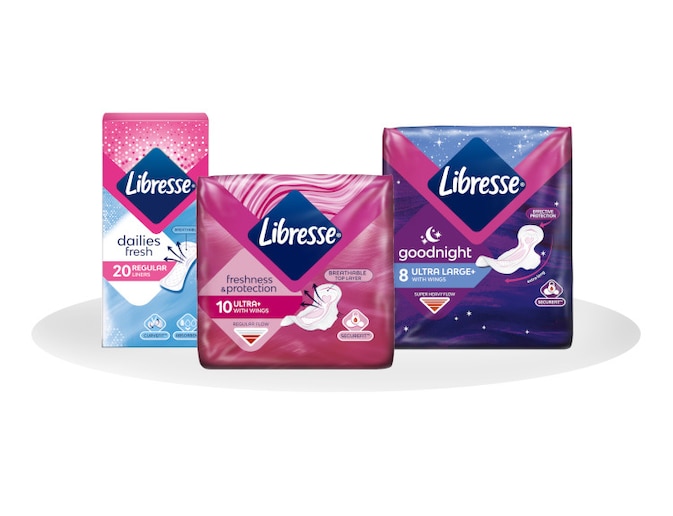Preparing your daughter for her first period

A girl’s first period is a major landmark in puberty, so as a parent you’ll want to make sure your daughter is fully prepared. Here’s how to talk to her about everything from the colour of period blood to putting a tampon in for the first time.
Power to the period
Get your facts straight

Get the family talking
A recent study found that almost three-quarters of women aged 14-21 were still embarrassed about buying sanitary products. As we’ve mentioned at the beginning of this article, education and conversation will help your daughter to question why there’s still any shame or stigma around periods. You’ll be helping her to feel empowered during her period (which, over a woman’s average lifetime amounts to about 8.2 years! ).
Guys don’t bleed on a monthly basis, but that doesn’t mean that periods are exclusively a female issue. If you have sons, discuss the topic with them. And if you’re a dad reading this, you can show support for your daughter by making sure that there’s always a place in the conversation for periods, and always a shelf in the bathroom for sanitary products.
First periods can bring up all sorts of niggling questions
Your daughter might already have started her period, or you could have a sense that it’s just about to come. Here are a few common worries she might have, with answers to help you support and reassure her.
My daughter’s worried her period blood’s a strange colour
Your daughter might already have started her period, or you could have a sense that it’s just about to come. Here are a few common worries she might have, with answers to help you support and reassure her.
She’s worried she smells when she’s on her period
Tell your daughter that just as the colour of period blood varies, the way a vagina smells does too. On one day it could be sweet and musty, and on another, slightly metallic. A vagina never smells like fabric conditioner though, so discourage your daughter from reaching for strong fragrances or deodorants, because these can disturb the PH balance.
She’s worried she’ll leak
Stained underwear, blood patches on the backs of skirts or trousers, puddles on chairs (we’ve all heard the horror stories). Leaking can be a big worry for girls who’ve just started their periods, but thankfully, really heavy bleeding is not as common as your daughter might think.
Give her sanitary pads or tampons to suit different flows – that way she’ll be well prepared for all days. And reassure her that everybody has accidents, and that if she does have a leak and she’s not with you to tell someone she trusts so they can help.
My daughter asked, ‘Can a girl can get pregnant on her first period?’

She loves swimming and wants to try a tampon for the first time, but has only just started her period. How can I support her?
It sounds as if your daughter’s really keen to give tampons a go, so encouragement is key here. If she tries but it’s not a success, tell her it usually takes a few goes. Ask what she’s finding difficult. It could be her position, so suggest she tries a different angle when inserting the tampon.
And periods beyond the first one?
It’ll take a while for your daughter to work out how she feels when she’s on her period, how heavy or light her bleeding will be, and what products she prefers using. The best thing you can do is keep the conversation going. After all, when your daughter’s period starts, the talk shouldn’t stop.
Reassure, reassure and reassure some more
Like every girl, your daughter is unique, and so too will be her experience of periods. Reinforce this by telling her that whatever she goes through may be different to her friends, but it doesn’t mean it’s not normal.
[Sources]
[1]https://plan-uk.org/blogs/five-things-you-can-do-to-end-period-poverty- including stats from a survey of 1,000 girls carried out by The Department of Health
[2]https://plan-uk.org/blogs/five-things-you-can-do-to-end-period-poverty
[3]https://plan-uk.org/blogs/five-reasons-we-need-to-talk-about-periods



